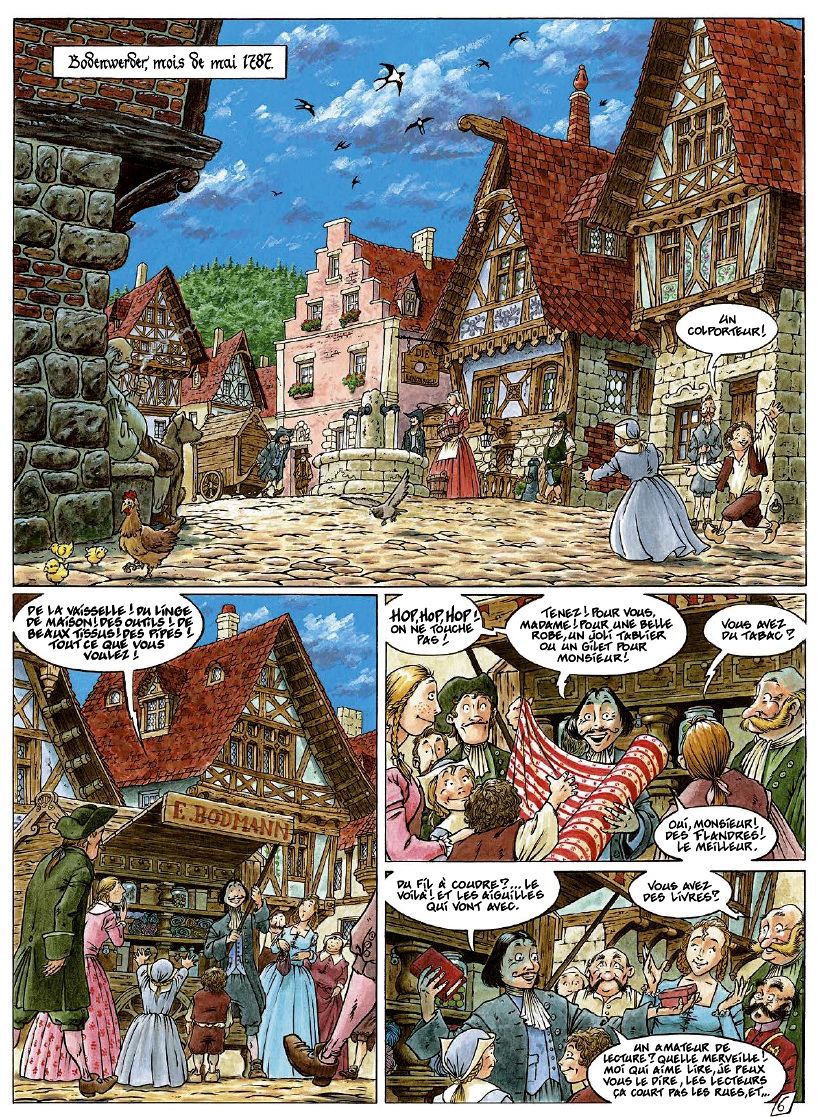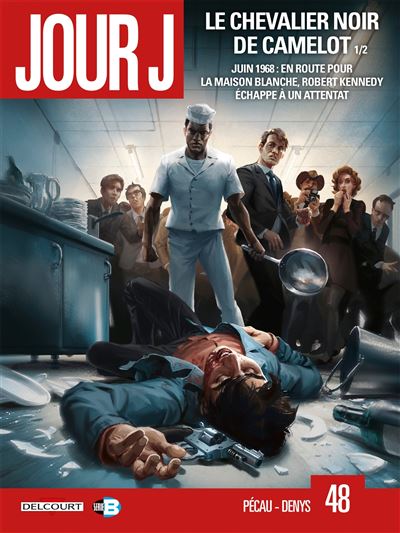Thanks to cinema, the Baron of Münchhausen, or Baron of Crac on our side of the Rhine, remains a figure that is always popular with an audience that is constantly renewed. He returns to comics at Delcourt in an unusual light thanks to the pen and brush of Jean-Luc Masbou, designer of the essential and indispensable De cape et de crocs. What was going to happen after De cape et de crocs for its brilliant authors? Alain Ayroles, writer of the series had already answered the question last year alongside the no less talented Juanjo Guarnido, cartoonist of Blacksad (Dargaud), by publishing one of the wonders of 2019, Les Indes fourbes. A year later, it was Masbou's turn to recall our good memories by painting the life of the unmistakable Baron Karl Friedrich Hieronymus of Münchhausen (1720-1797). Because, and this is a little known fact, the Baron really existed.
The Baron reviewed and corrected by himself
Instead of serving us an umpteenth version of the burlesque adventures of the Baron, Masbou chose this time to show us the life of this historical character returned to enjoy the peaceful life of a lord after hanging up his mercenary sword… Until the day when a street vendor arrives in the nearby village with a copy of the book narrating his incredible adventures. The Baron will then pose as a commentator of his own biography, which will never fail to arouse amusement. One sometimes even has the impression of seeing a known goupil or janissary at the corner of one or the other box. 
The Author has fun… The ITOU reader
From the first pages, we feel that Masbou delights in putting his story in images. We find the familiar paw that had enchanted us during the ten volumes (plus two) of De cape et de crocs. But the designer also uses various styles to illustrate specific parts (naive drawing, monochrome, sanguine …) His story is not to be outdone, and is not superficial as some might have apprehended. Behind the humor and fantasy, there is a real proposal on the aging of the hero who has no more battles to fight and who must face the rest of his life in the peace of everyday life and routine. Le Baron is a beautiful album of sixty-four wonderful plates that will delight not only connoisseurs of the author but also those who will discover it through it. Let's bet that this beautiful book (at the end of which we find some preparatory drawings and other pencils – a little illegible, it is true) will find a place of choice at the foot of the conifers of December (artificial or not).





































